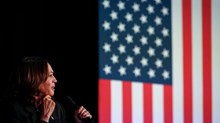Yesterday, the Huffington Post reported that evangelicals' influence heading into Super Tuesday would be greatly weakened. Without a compelling conservative candidate, and with younger evangelicals' political concerns expanding beyond core issues of the Religious Right, the Post predicted that the evangelical vote would be split. By and large, that prediction seems to be true.
The danger of being captive to either party has been noted by many evangelical leaders, including Florida megachurch pastor Joel Hunter. As he said to CT's Liveblog earlier this evening, "People just can't be pinned down to their proper categories anymore. That's probably the story that will come out of this election."
But if evangelicals can't be counted on to vote together, are they worth targeting at all? If conservative, white, male evangelicals vote just like other conservative white males, does it matter that they're evangelicals? If urban, progressive evangelicals vote just like other urban liberals, does their religious affiliation need to be considered?
Depending on how you look at it, the story of Election 2008 may be the maturing of the evangelical vote – or the increasing irrelevance of it.

Support Our Work
Subscribe to CT for less than $4.25/month

















